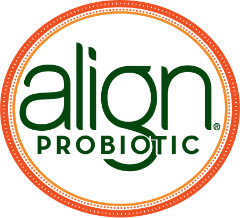
PROBIOTIC TIPS
Top Probiotic Foods to Add to Your Diet
Making probiotic foods part of your daily diet can be very simple, but many people may not know some of the most common sources. Think you’re not getting enough foods with probiotics in your diet? We can help by answering the most common questions about probiotic foods and how to find them.
WHAT ARE PROBIOTIC FOODS?
First, it might be helpful to define what a probiotic is. Probiotics are live microorganisms, that when consumed in the right amount, offer health benefits. They can help your body digest food and produce nutrients, and support the good bacteria in your gut, in addition to other potential benefits.
Probiotic foods are foods that contain live microbial cultures that have been shown to offer health benefits. These helpful bacteria can be found in cultured dairy foods like yogurt, fermented vegetables like kimchi and raw sauerkraut, nutrition bars, and other foods that have been fortified with probiotics. But foods are not the only sources; probiotics can also be found in dietary supplements.
HOW ARE PROBIOTIC FOODS MADE?
Foods with probiotics can be made in a variety of ways, one common method is by allowing live bacteria to grow, in what is called fermentation. Fermentation is a common step in the production of many types of foods. Some of these foods (like bread, wine, some cheeses, sauerkraut, and kimchi) are heated or filtered to extend shelf-life, but this can kill or remove the live cultures.
One important thing to remember is that not all fermented foods are technically probiotics. To be a probiotic food, it still has to contain a strain of live microbe that’s has a proven health benefit. This means that even though there are many foods have live cultures, there may be no scientific evidence those strains provide a health benefit. It’s best to check the label to see if a food has probiotic strains.
WHAT ARE THE TOP PROBIOTIC FOODS TO ADD TO YOUR DIET?
When you’re looking for probiotic foods, try fermented foods that retain some of their live cultures (make sure they are labelled as foods with probiotics). Good examples of foods with live cultures are:
- Fresh kimchi
- Kefir
- Yogurt
- Fresh sour pickles
Other foods like water or brine cured olives and some cheeses can be sources of foods with probiotics.
Some may have labels with a “live and active cultures” seal, but it isn’t always easy to know when products contain live cultures. It may be even harder to know if these products contain probiotics with proven health benefits.
HOW DO PROBIOTIC FOODS AFFECT DIGESTIVE HEALTH?
Foods with probiotics can help to maintain a healthy intestinal microbiome, which is the microbe population in your digestive system. It is made up of trillions of bacteria. Researchers have found lots of evidence that connects certain types of probiotics with stimulating immune functions and improving overall gut health.
But only foods and supplements that contain live, active cultures actually add these beneficial bacteria to the digestive tract. And as we’ve talked about, some of the foods marketed as probiotic foods may not technically be probiotic. It can be hard for foods and beverages to maintain consistent levels of live active bacteria because of processing or storage requirements.
WHAT ARE ALTERNATIVE SOURCES OF PROBIOTICS?
If you’re looking to add more probiotics to your diet, you may find probiotic supplements offer unique benefits over foods with probiotics.
First, supplements may be a good option if you’re concerned about the calories associated with getting probiotics from food. Second, some probiotic supplements may be more convenient to take since they do not require refrigeration like foods with live cultures often do. Third, for some people taking supplements make getting the required dosage easier to take by putting it in capsule form. For instance, in order to receive the benefits of Bifidobacterium 35624™ - the strain found in Align® Digestive Support - only one capsule a day is needed and you can take it any time of day.
Finally, probiotic supplements may offer different bacterial strains than probiotic foods. Because the strain of bacteria determines the health benefit, it’s important to know it when choosing the right probiotic food or supplement. Quality probiotic food or supplements will be clearly labelled with the strain(s) they contain.
If you’re unsure of which strain or source might be right for you, you should speak with your doctor. They can guide you towards the one that would be best suited for your individual needs.
